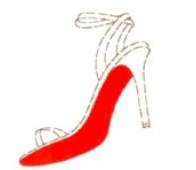The descriptive character of the two-letter trademark “QD” (LG Electronics) – Ruling of the EU General Court in Case T-650/16
On 12 January 2015, the company LG Electronics Inc. submitted the mark “QD” to the EUIPO. The application was made for: “television receivers; mobile phone; smartphones; tablet computers; computers; sound recording devices; image recording devices; sound transmission devices; image transmission devices; sound playback devices; image reproduction devices; software; software for interactive television; communications software; computer software” belonging to class 9 of the Nice Classification.
In a decision of 19 August 2015, the application for registration of the mark was dismissed in relation to all goods, on the basis of Article 7 par. 1b) and c) of Regulation No. 207/2009 due to the absence of any distinctiveness of the sign and given that the mark consists solely of a descriptive element in relation to the goods for which it was submitted.
LG Electronics Inc. disagreed with that decision and lodged an appeal with the EUIPO on 9 October 2015. Subsequently, in a decision of 24 May 2016, the Board of Appeal of the EUIPO dismissed the appeal, ruling that the word mark “QD” is descriptive for the goods the submission referred to.


